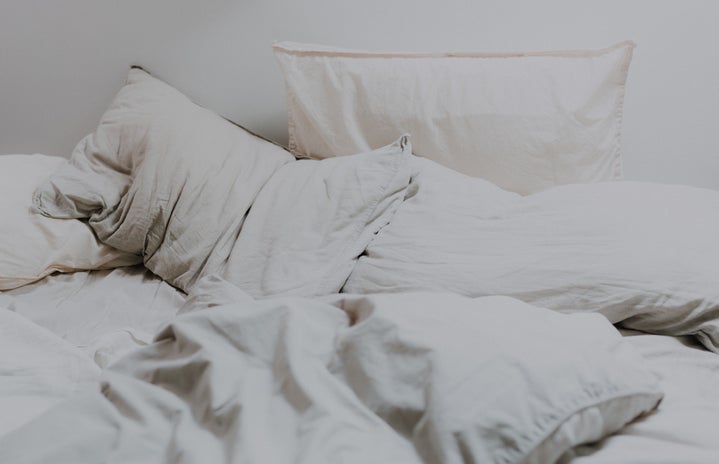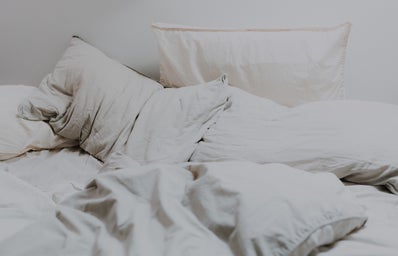You’ve had a long day. You have been running around campus going from class to class, then rushing to work, and finally studying long and hard hours in the library. You come back, take a shower, finish some more readings, and then you are ready to pass out.
But once you get in bed — nothing.
Literally, you can’t fall asleep! You try counting, you try making up scenes in your head, but all you can think about is how you’re losing another hour of sleep. It seemed so easy to fall asleep in your boring lecture, but now that you’re tucked in bed, it is impossible to fall asleep!
There are countless articles and videos online about “hacks” to fall asleep faster and products to buy to block out noise. While these resources can be extremely helpful, the first thing to know about a good night’s sleep is sleep hygiene.
Sleep is extremely important for us students. Now that we are back on campus and most of us are living away from home in our dorms, our sleep has changed. We’re in a completely new bed and room. Sleep hygiene not only focuses on falling asleep, it also shows us how to have good quality of sleep.
Why is Sleep Hygiene important?
Obtaining healthy sleep is important for both physical and mental health, improving productivity and overall quality of life. Everyone, from children to older adults, can benefit from better sleep, and sleep hygiene can play a key part in achieving that goal.
How do you practice good sleep hygiene?
Set Your Sleep Schedule
Having a set schedule normalizes sleep as an essential part of your day and gets your brain and body accustomed to getting the full amount of sleep that you need. This means making sure to have a night routine that you follow everyday and a set time to wake up, even on weekends — which, I know, can be difficult when we have the mindset that we can catch up on sleep on the weekends. But this mindset is especially detrimental to our health — our body needs to have a routine.
Follow a night schedule
It can be tempting to stay up late at night to finish up assignments and readings, and then go to sleep right after. But we actually need to set some time before going to sleep to unwind and relax. This means you should budget 30 minutes for winding down by taking advantage of whatever puts you in a state of calm such as light stretching, reading, and/or relaxation exercises. Also, try to keep away from bright lights because they can hinder the production of melatonin, a hormone that the body creates to facilitate sleep.Unplug From Electronics: Build in a 30-60 minute pre-bed buffer time that is device-free. Cell phones, tablets, and laptops cause mental stimulation that is hard to shut off and also generate blue light that may decrease melatonin production.
Practice Daily Healthy Habits
What we do in the day impacts how we sleep at night.
Be physically active: Regular exercise can make it easier to sleep at night and also delivers a host of other health benefits.
Cut down on caffeine in the afternoon and evening: Because it’s a stimulant, caffeine can keep you wired even when you want to rest, so try to avoid it later in the day. Also, be aware if you’re consuming lots of caffeine to try to make up for lack of sleep.
Don’t dine late: Eating dinner late, especially if it’s a big, heavy, or spicy meal, can mean you’re still digesting food when it’s time for bed. In general, any food or snacks before bed should be on the lighter side.
It Takes Trial and Error
Developing these habits and abiding by them takes time, so don’t get frustrated when things don’t seem to change for the better for you right away! The main point here is that you prioritize your sleep just as you would your school work.


